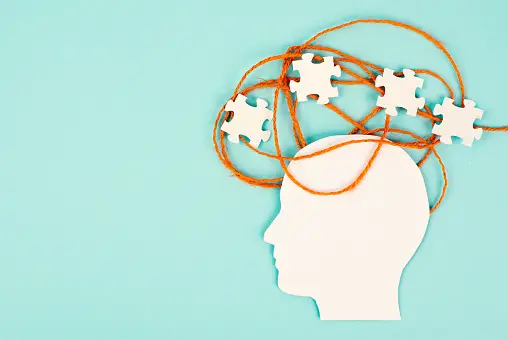Effective Natural Remedies for ADHD: Alternatives to Adderall
Attention Deficit Hyperactivity Disorder (ADHD) is a common neurodevelopmental disorder that affects both children and adults, characterized by symptoms such as inattention, hyperactivity, and impulsivity. While medications like Adderall are frequently prescribed to manage these symptoms, many individuals seek natural alternatives due to concerns about side effects, dependency, or a preference for holistic approaches. This article explores a variety of effective natural remedies that serve as alternatives to Adderall for ADHD.
Understanding ADHD and the Role of Adderall
ADHD affects millions of people worldwide, causing difficulties in maintaining attention, controlling impulses, and staying organized. Adderall, a stimulant medication, is often used to improve focus and reduce impulsivity and hyperactivity in individuals with ADHD. However, it can lead to side effects such as increased heart rate, anxiety, insomnia, and appetite suppression, prompting some to look for natural alternatives.
Dietary Modifications
Diet plays a crucial role in managing ADHD symptoms. Certain nutrients can enhance brain function and stabilize mood, while others might exacerbate symptoms.
Omega-3 Fatty Acids
Omega-3 fatty acids, found in fish, flaxseeds, and walnuts, are essential for brain health. Research suggests that supplementation with omega-3 can improve attention and reduce hyperactivity and impulsivity in individuals with ADHD. Consuming foods rich in omega-3s or taking fish oil supplements can be a beneficial natural remedy.
Protein-Rich Foods
Proteins are vital for producing neurotransmitters that help with focus and concentration. Incorporating protein-rich foods such as lean meats, eggs, beans, and nuts into the diet can help stabilize blood sugar levels and reduce ADHD symptoms.
Reducing Sugar and Processed Foods
High sugar intake and consumption of processed foods can lead to spikes and crashes in energy levels, worsening ADHD symptoms. Reducing sugary snacks and avoiding artificial additives can help maintain more stable energy and focus.
Herbal Supplements
Several herbal supplements have shown promise in managing ADHD symptoms naturally.
Ginkgo Biloba
Ginkgo Biloba is known for its cognitive-enhancing properties. It may improve attention, memory, and executive function in individuals with ADHD. Some studies suggest that it can be a useful supplement for managing symptoms.
Bacopa Monnieri
Traditionally used in Ayurvedic medicine, Bacopa Monnieri has been shown to enhance cognitive function and improve memory. It may help reduce inattention and impulsivity in individuals with ADHD.
Rhodiola Rosea
Rhodiola Rosea is an adaptogenic herb that helps the body adapt to stress. It can reduce fatigue and improve mental clarity, potentially benefiting those with ADHD by enhancing focus and reducing stress-related symptoms.
Mindfulness and Meditation
Mindfulness and meditation practices can significantly benefit individuals with ADHD. These practices involve focusing on the present moment and accepting it without judgment, which can help improve attention and reduce impulsivity.
Mindfulness Meditation
Regular mindfulness meditation can enhance self-awareness and emotional regulation, key areas affected by ADHD. By practicing mindfulness, individuals can learn to manage their symptoms more effectively and improve their overall well-being.
Yoga and Tai Chi
Both yoga and Tai Chi incorporate mindfulness and physical activity, providing a dual benefit for individuals with ADHD. These practices can improve focus, reduce stress, and enhance overall physical and mental health.
Physical Exercise
Exercise is a powerful natural remedy for ADHD. Physical activity increases the levels of dopamine and norepinephrine in the brain, which are essential for attention and focus.
Aerobic Exercise
Activities such as running, swimming, and cycling can help reduce ADHD symptoms by improving mood, reducing anxiety, and enhancing cognitive function. Regular aerobic exercise can lead to significant improvements in focus and behavior.
Strength Training
Strength training exercises, such as weightlifting or bodyweight exercises, can also benefit individuals with ADHD. These activities help improve self-discipline, reduce impulsivity, and enhance overall mental health.
Behavioral Therapy
Cognitive-behavioral therapy (CBT) is an effective non-medication treatment for ADHD. It focuses on changing negative thought patterns and behaviors, helping individuals develop better coping strategies and organizational skills.
Cognitive-Behavioral Therapy
CBT can teach individuals with ADHD techniques to improve time management, organization, and problem-solving skills. This therapy helps address the underlying issues contributing to ADHD symptoms and provides tools for long-term management.
Coaching and Support Groups
ADHD coaching and support groups can provide additional support for individuals managing ADHD. Coaches can help set goals, develop strategies, and provide accountability, while support groups offer a sense of community and shared experiences.
Sleep Hygiene
Good sleep hygiene is essential for managing ADHD symptoms. Poor sleep can exacerbate inattention, impulsivity, and hyperactivity.
Establishing a Sleep Routine
Creating a consistent sleep schedule and bedtime routine can help improve sleep quality. Avoiding screens before bed, creating a relaxing sleep environment, and reducing caffeine intake can also promote better sleep.
Addressing Sleep Disorders
Many individuals with ADHD also have sleep disorders such as insomnia or sleep apnea. Addressing these issues through medical intervention or lifestyle changes can significantly improve overall symptoms.
Stress Management Techniques
Stress can worsen ADHD symptoms, making it important to incorporate stress management techniques into daily routines.
Relaxation Techniques
Practices such as deep breathing exercises, progressive muscle relaxation, and mindfulness meditation can help reduce stress levels and improve focus and emotional regulation.
Hobbies and Leisure Activities
Engaging in hobbies and leisure activities can provide a break from stress and improve overall well-being. Creative activities such as drawing, playing music, or gardening can be particularly beneficial.
Conclusion
While Adderall is an effective treatment for many individuals with ADHD, natural remedies offer alternative ways to manage symptoms without the potential side effects and risks associated with stimulant medications. Dietary modifications, herbal supplements, mindfulness practices, physical exercise, behavioral therapy, sleep hygiene, and stress management techniques provide a holistic approach to managing ADHD. It is essential to consult with healthcare professionals before making significant changes to a treatment plan to ensure safety and effectiveness. By exploring these natural alternatives, individuals with ADHD can find strategies that align with their preferences and lifestyles, leading to improved focus, productivity, and quality of life.

